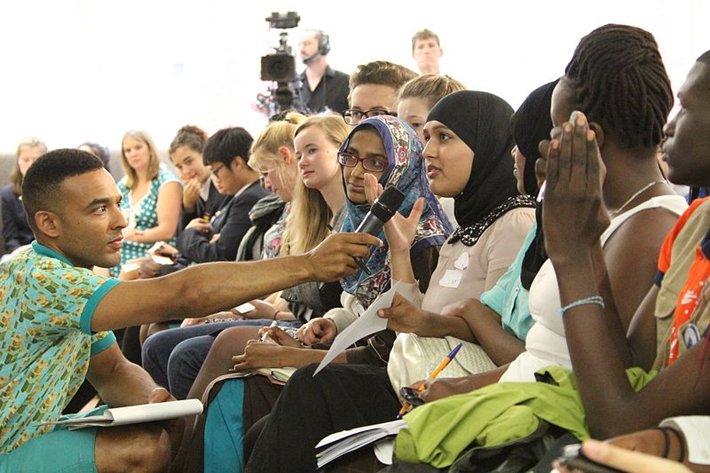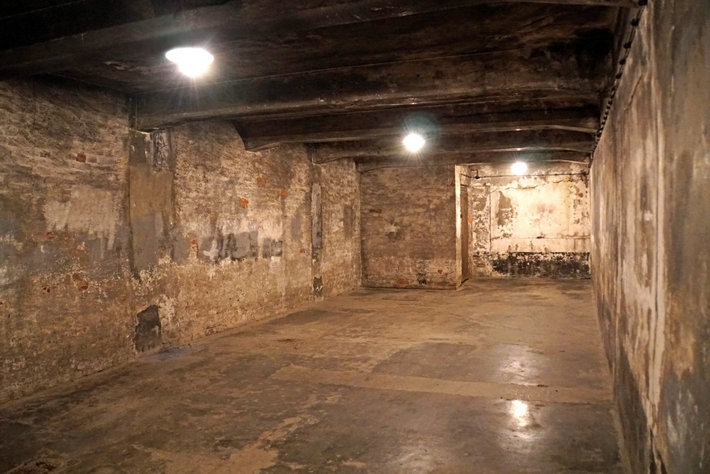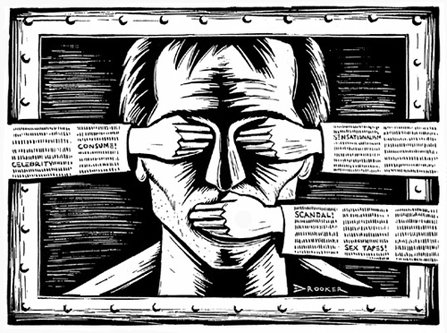
-
HOME
-
WHAT IS STANDOur Mission Our Values Our Help Contact
-
WHAT WE FIGHT FORReligious Freedom Religious Literacy Equality & Human Rights Inclusion & Respect Free Speech Responsible Journalism Corporate Accountability
-
RESOURCESExpert Studies Landmark Decisions White Papers FAQs David Miscavige Religious Freedom Resource Center Freedom of Religion & Human Rights Topic Index Priest-Penitent Privilege Islamophobia
-
HATE MONITORBiased Media Propagandists Hatemongers False Experts Hate Monitor Blog
-
NEWSROOMNews Media Watch Videos Blog
-
TAKE ACTIONCombat Hate & Discrimination Champion Freedom of Religion Demand Accountability
Hate Speech: Why More Communication—Not Less—Is the Answer
There’s a principle in Scientology that communication is the universal solvent. The idea is that if there’s ever a problem, enough genuine communication can handle it, no matter how complex or intractable the problem may seem.

I’ve definitely observed this in life and in my own relationships. The less communication, the less understanding—without exception. It even gets to the point sometimes where if I’m having a disagreement with someone about something, we can just keep talking about anything at all until we get to the point where we find ourselves in better agreement. It’s kind of magical, and so simple that it’s incredibly easy to overlook.
Limiting the free-flowing exchange of ideas is the first step on the road to cultural ruin.
A recent article I read reminded me of the power of communication, and especially how important it is under challenging circumstances—circumstances where it feels like finding common ground might be impossible.

The question on the table is whether it’s ever appropriate to publicly showcase Nazi memorabilia from World War II and whether or not simply showing that material constitutes a form of endorsement and could therefore be considered hate speech.
I grew up in Germany. I was there in the late 1980s when the Berlin Wall fell and watched Germany joyfully reunite after more than 30 years of living with half of itself firmly in the West and the other half hidden behind the Soviet Union’s repressive Iron Curtain. I also saw firsthand how the decades-long impact of the Nazi regime rippled out and devastated lives across Europe and around the world.

As the son of teachers who taught military kids, I also grew up around the U.S. military and saw what it means to truly sacrifice for your country and your beliefs.
I love my country and I hate everything the Nazis stood for. And right now I think a lot of people are fearful that hate groups have been emboldened to share their message more broadly and which is why they want to send the clearest possible message that hate speech is something that people will not tolerate in their communities.
I believe if you allow the most open, transparent and abundant free-flow of communication and ideas, you will ultimately arrive at a conclusion that is most agreeable to the largest number of people.
I agree that hate speech has no place in civil discourse, but when people are afraid to communicate at all about entire subjects because they’re afraid of being labeled as something they aren’t, that climate of fear has its own far-reaching consequences on civil discourse that also tear at the fabric of what it means to live in an open, free society.

In the article I referenced above, this isn’t even a question of hate speech, since there was apparently never any intention of glorifying Nazi memorabilia, any more than there would be in a World War II documentary or Holocaust museum. And the fact that history buffs and people of goodwill are afraid to publicly congregate and communicate in order to simply observe and understand history in a respectful way is, quite frankly, scary. I toured through concentration camps during my time in Europe, as well as museums that included incredibly graphic photos of what were once realities there—including Nazi symbols and officers in uniform. That brief experience changed my viewpoint forever. The ability to face our history prevents us from repeating it, and that begins with honest, uncensored communication.
Ultimately, I believe in the basic goodness of people. I believe if you allow the most open, transparent and abundant free-flow of communication and ideas, you will ultimately arrive at a conclusion that is most agreeable to the largest number of people.

Limiting the free-flowing exchange of ideas is the first step on the road to cultural ruin.
I hope we wake up as a society and decide to take responsibility for our own communication and that of others. Ideas shouldn’t be scary and they certainly shouldn’t be hidden away from the light. If you allow one angry, misguided person to spout ideas that most people find reprehensible, but also encourage a thousand people to talk about the positive, productive, helpful and beautiful, what do you think the net result will be?
The responsible thing to do is not to limit our collective freedom of speech in order to shield ourselves from hateful rhetoric, it’s to drown out that hateful rhetoric with so much responsible, constructive communication that it simply doesn’t stand a chance. More communication, not less, is always, always the answer.









